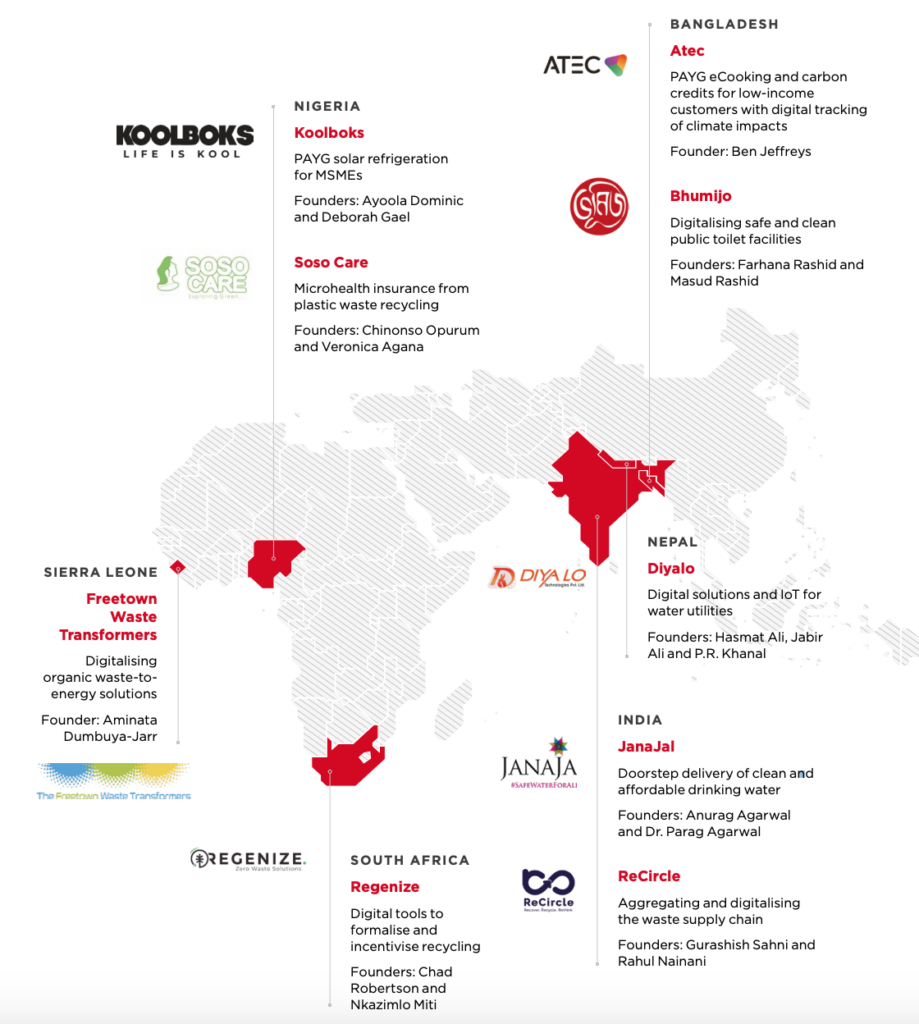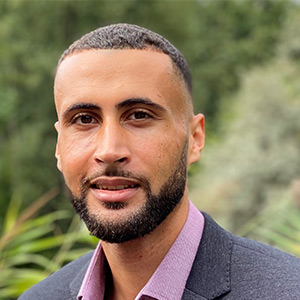Cities across the world, particularly in low- and middle-income countries (LMICs), are confronted with multiple concurrent challenges including rapid urbanisation, climate change, lack of investment and growing inequality. While cities are rightly considered engines of productivity, prosperity and social mobility, it is critical that they are supported to respond to these challenges so they can maximise their economic and social potential.
A case in point is the provision of essential utility services. Access to affordable, reliable, safe and sustainable utility services such as energy, water, sanitation, waste management and transport is vital not just for the welfare of urban residents across the income spectrum, but for the effective functioning of cities as a whole.
How the GSMA enables innovative urban service models through digital solutions and partnerships
Our GSMA Digital Utilities programme has recognised the potential of digital technologies in transforming how people interact, do business and access services in cities. Digital technologies have not only enabled innovative service models that increase access to essential utility services, but have also helped cities absorb, adapt and anticipate current and future challenges related to climate change.
Access to mobile connectivity continues to spread, the adoption of digital payments continues to grow, the Internet of Things (IoT) ecosystem in LMICs continues to mature, start-up ecosystems in cities across the world continue to emerge and national as well as local governments look to digital technologies to help solve critical policy challenges. It will be critical to bridge gaps between public and private sectors and maximise the developmental potential of digital technologies across cities in LMICs.
For the past decade, our programme has been at the forefront of enabling access to essential utility services through digital solutions and innovative partnerships. This blog highlights some of our recent work in cities in the recent years and what we have planned in the coming months.
Financing for cities
This year’s theme for World Cities’ Day, ‘financing sustainable urban future for all’, explores how financing can unlock transformative investments and achieve adequate fiscal decentralisation. Cities across the world face a $3.2 trillion annual investment gap, and cities in LMICs face especially profound constraints when it comes to attracting investments in essential services and infrastructure.
It is therefore critical for donors to support the adoption innovative service models that can support more efficient service delivery, while also crowding-in necessary private sector financing. In 2021, through the GSMA Innovation Fund, we launched a funding round focussed on digital urban services, with the support of the UK Foreign, Commonwealth and Development Office (FCDO). It supports organisations that provide essential urban services by leveraging digital innovations and partnerships to make these services accessible, reliable, sustainable, and affordable. We received over 300 applications from 43 countries, and selected nine innovative organisations across Africa and Asia. We will soon be sharing learnings and insights from the innovators in the coming months.

Our GSMA Innovation Fund for Digital Urban Services cohort
Besides funding innovators and supporting them in their scaling journeys, we also conduct research on the role of digital solutions and partnerships in closing urban service gaps and addressing urban climate change challenges. This month, we published a report that explores the role digital technologies are playing in enabling innovative financing opportunities for social enterprises in LMICs. The report highlights how digital technologies can support innovators operating in ‘complex’ sectors, such as urban utility service delivery, to move beyond common challenges associated with the missing middle investment gap and access innovative financing instruments to support more scale and more social impact.
As exemplified by enterprises, such as Sanivation in Kenya, or Loowatt in Madagascar, scaling decentralised service models through public-private partnerships can also help cities attract vital funding in critical services and infrastructure such as waste management and sanitation.
Why innovative partnerships are key to urban development
Our programme’s key aim is to support partnerships that can scale innovative service models across sectors. As such, we have been convening different events that bring together stakeholders to discuss how to foster synergies between public and private sectors, and between large corporates such as mobile operators, and the start-up ecosystem.
Recently, during MWC Kigali held from 17 to 19 October, we hosted a session entitled, ‘A smarter future for African cities’, where we hosted speakers from organisations such as Ampersand, the Ministry of ICT in Rwanda, MTN Uganda, Safaricom and UN-Habitat. The discussion explored the convergences between the rise of smart cities in Africa, what it means for public-private collaboration, and the key opportunities this trend presents for mobile operators and private sector innovators through digital payments, IoT use cases such as smart meters for urban utilities, or e-mobility solutions. The common thread among the speakers was the need to collaborate across sectors to make this this vision possible, and to adapt business models and product offerings to local needs.

In the past two years, we have also convened Digital Urban Utility Forums across cities in Africa and Asia. These forums bring together start-ups, local government officials, regulators, enabling organisations, and private sector partners in a city. Their aim is to discuss the barriers and opportunities associated with public-private collaboration for improved urban service provision. The forums underline the developmental and commercial returns associated with innovative service delivery models, draw on impactful case studies that showcase the value of start-up public sector partnerships, create a forum for open and honest reflections about potential partnership barriers and shortcomings, and identify relevant opportunities for deeper follow-up engagement. We have so far worked across the following cities:
- Lagos, Nigeria: In November 2021, we held an invite-only virtual workshop convening both public and private sector stakeholders in waste management and transport, as well as mobile operators and enabling organisations. The participants highlighted some of the key challenges the sectors were facing and the opportunities that existed in Nigeria.
- Islamabad, Pakistan: This virtual workshop, that was held in April 2022 and was co-hosted with the National Incubation Center, Pakistan, provided a forum for stakeholders to discuss key challenges and opportunities for public-private partnerships in three thematic areas: investments in climate-tech; water and sanitation; and clean cooking.
- Kigali, Rwanda: At the side lines of MWC Africa in 2022, we brought together 26 participants from 21 organisations for a closed-door discussion focused on how effective government policy and technological innovation can enable access to urban services.
- Kathmandu, Nepal: In February 2023, and in partnership with Diyalo and Gham Power– two of our Innovation Fund alumni, we hosted an in-person forum on “Improving Urban Water and Energy Services in Nepal’ with over 70 participants, reflecting on the digitalisation journeys of the two sectors and what can be done to accelerate adoption of digital technology.

Our Digital Urban Utilities Forum in Nepal
In January 2023, we will be hosting an in-person workshop in Freetown, Sierra Leone, together with our Innovation Fund alumni, Freetown Waste Transformers, inviting government officials, non-governmental actors and stakeholders to convene, share insights and collectively work on innovative solutions to tackle Freetown city’s waste management challenges.
Co-designing urban futures
Scaling innovations in cities requires partnerships with like-minded organisations and understanding the value of bridging the gap between public and private sectors. In collaboration with Connected Places Catapult and UN-Habitat, we recently announced the Co-designing Urban Futures initiative. The initiative aims to address challenges in intermediary cities across LMICs by driving collaboration between the public and private sectors and enabling the adoption of innovative service delivery models.
Most local governments around the world understand the benefits of technology and innovation for improved service delivery. Yet due to limited human or financial resources, they lack the capacity to train city officials on new innovative methods and tools, or the means to effectively engage the public and private sector to address local challenges using innovation. Innovation thus often becomes concentrated in a few key markets in major cities – and this is what the new partnership will address. Over the coming months, we look forward to engaging with partners, funders, and local governments aiming to join us in our mission!
What’s next?
Besides our own events, our team has also attended the recently held Africa Climate Week, Africa Smart Cities Investment Summit, and Urban Economy Forum, engaging, and sharing our work with other city actors and partners. We are looking forward to the ongoing opportunities in supporting urban innovations in LMICs and are look forward to exchange with other organisations that share our objectives.
We are also keen on advancing our work in intermediary cities across LMICs as they face unique challenges in adopting digital solutions and innovative service approaches, and are often even more constrained when it comes to access to fiscal resources, government transfers, or donor support. As part of this we also want to continue sharing evidence on the role that essential utility services play in the climate transition, and how digital technologies and innovative partnerships can help cities not just provide services more effectively, but also help them close the funding gap for essential services and infrastructure.
If you’d like to learn more about our work, or want to be a partner on some of our ongoing activities such as the digital urban utility forums, or the Co-Designing Urban Futures initiative, please get in touch at [email protected].
The Digital Utilities programme is funded by the UK Foreign, Commonwealth & Development Office (FCDO), and supported by the GSMA and its members.




